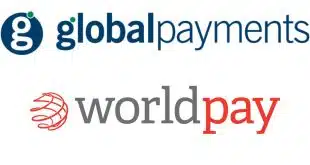By John Stewart
At Infinite Peripherals Inc., there’s nothing peripheral about the mobile point of sale. The Elk Grove Village, Ill.-based company, whose stock in trade is not the mobile device but just about anything that can be connected to it, is growing rapidly in tandem with the soaring popularity of mPOS.
Some 13 million mPOS devices—handhelds as well as tablets—will ship worldwide this year, with 7 million of them going to U.S. stores, according to Aite Group, a Boston-based research firm. That’s creating an ever-increasing market for the mag-stripe. EMV, near-field communication, and barcode readers IPC sells.
“This is going to be a rising tide that floats all boats,” says Andrew Graham, co-founder and president of the company, which serves 3,500 direct clients and claims an installed base of half a million devices. Although IPC has moved into new markets like health care, about 80% of its customers are still large and mid-size retailers
Already, IPC has expanded its head count by more than 20% over the past year, an effort augmented by the growth of what was once a single-person software group into a bustling unit staffed by as many as eight developers at any given time. Increasingly, clients are looking to device suppliers rather than third parties for software provision and support, says marketing coordinator Dan Olson, who himself joined IPC last year. “Software is opening the door to new hardware opportunities, where it used to be the opposite,” Olson says. “But at the end of the day, hardware is still our bread and butter.”
Though it worked in years past with a variety of handheld devices, including Palm, BlackBerry, Windows Mobile, and Handspring, the 22-year-old company about six years ago hitched its star to Apple Inc. Its readers work with iPhone 5 and 6 as well as the iPad. And soon the newly opened field of wearables may be tapped.
“We’ve got Apple Watches in the lab, seeing what we can do there,” says Graham, who quit his job as a salesman of business forms to help start IPC. “The surface has barely been scratched as to what the Apple Watch affords.” IPC maintains it lab in its Irvine, Calif., office, while keeping its headquarters and warehouse in Elk Grove, a suburb of Chicago.
Though his company is open to working with Android technology, Graham says Apple offers several key advantages to suppliers of peripheral mPOS devices like IPC. One key benefit is a regular upgrade schedule. “Apple has handed us a huge advantage in that they are very stable with their updates,” he notes. To illustrate the importance of this point, he cites an exception—Apple’s move from its 30-pin to its Lightning connection, which affected peripherals like card readers. “That was a big change,” Graham says.
IPC was attracted to Apple iPhones and iPods initially, Graham adds, by the computer giant’s developer program. “Apple came out with tools for developers, and we were one of the first to sign on to that,” Graham recalls. “They made it easy to set up. The developer program was way ahead of its time.”
Now Graham and Olson see opportunities for NFC as part of the mobile point of sale because of the increasing usage of Apple Pay. “We’ve been betting on NFC since the mid-2000s, it just never was there,” Graham says. Apple Pay, which emerged in October and was immediately compatible with IPC’s iPad reader, “kicked [NFC] into high gear,” says Graham.
In the same way, mobile-payment services like the retailer-controlled CurrentC wallet are likely to boost barcode scanning once they are launched, he says, adding, “There’s a lot of potential value in the CurrentC app.” CurrentC, managed by MCX, a consortium of more than 60 major merchants, is set to launch with a pilot in Columbus, Ohio, in the last week of the month. The system depends on devices that can scan barcodes to connect consumers’ payment credentials to the point of sale.
While the mPOS market is getting more crowded by the day, IPC stands apart with its focus on mobility for larger merchants while better-known companies like Square Inc. concentrate on small sellers. Says Graham, “There’s nothing we won’t try to make if it’s a peripheral and the customer wants it.”





